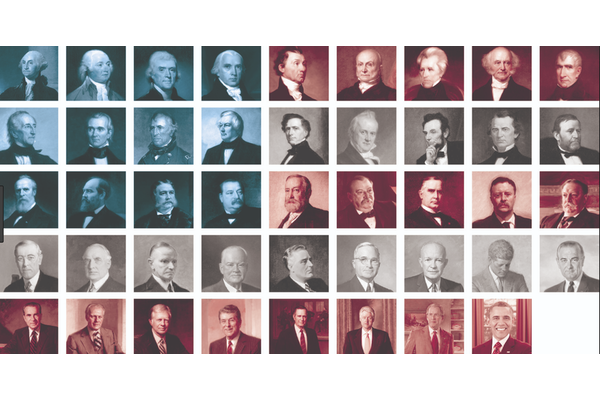6 Presidents Who Never Lost an Election

Americans are used to seeing people who become president as winners. After all, they have defeated an opponent sometimes decisively, sometimes narrowly to reach the highest office in the land.
However, few American presidents reach that point without experiencing electoral defeat at some point in their careers. In fact, of America’s 44 presidents, only six have won every election they have contested.
Thirteen presidents lost the presidency or presidential nomination on the way to ultimate victory---Thomas Jefferson, James Monroe, Andrew Jackson, William Henry Harrison, John Tyler, James Buchanan, Abraham Lincoln, Andrew Johnson, Grover Cleveland, Lyndon B. Johnson, Richard Nixon, Ronald Reagan, and George H. W. Bush. Eighteen presidents have lost the presidency after first winning the position (John Adams, John Quincy Adams, Martin Van Buren, John Tyler, Millard Fillmore, Franklin Pierce, Andrew Johnson, Ulysses S. Grant, Rutherford Hayes, Chester Alan Arthur, Grover Cleveland, Benjamin Harrison, Theodore Roosevelt, William Howard Taft, Herbert Hoover, Gerald Ford, Jimmy Carter, George H. W. Bush). Tyler, Pierce, Andrew Johnson, Hayes and Arthur were denied re-nomination by their party and any alternative possibility that they sought, while Van Buren, Fillmore, and Theodore Roosevelt lost third party bids. Grant was denied an opportunity to come back four years after his Presidency in his own Republican Party convention in 1880.
Two presidents (Lincoln and George H. W. Bush) lost Senate races on the way to the presidency, while Lyndon B. Johnson lost his first Senate race before winning his second race by the margin of 87 votes statewide in Texas. Others have lost House of Representatives races or the state governorships or state legislative races or an even more local race, such as a school board. In the case of the two Roosevelts, Theodore Roosevelt lost the New York City mayoralty election in 1886 and Franklin D. Roosevelt lost the vice presidency in the 1920 presidential election. John F. Kennedy lost the open battle for the vice- presidential nomination at the 1956 Democratic National Convention. And Calvin Coolidge lost a race for the Northampton, Massachusetts School Board in 1904.
Of the six successful presidents, three shared a common career path. George Washington, Zachary Taylor, and Dwight D. Eisenhower all had notable military careers, and never sought office other than the presidency. It is also worth noting that Washington and Eisenhower easily won re-election. Taylor on the other hand died shortly after taking office.
Illness and death also cut short the careers of two other winning presidents. James A. Garfield, a “dark horse” nominee in 1880, never lost the House seat he first won in 1862. The Ohio State Legislature elected him to the Senate in 1880 but he never served since he also became the Republican presidential candidate that same year. Sadly, he was assassinated shortly after taking office.
Woodrow Wilson’s electoral record was even thinner. Following a single two-year term as governor of New Jersey, he won the 1912 presidential election in a three-way contest with Republican candidate William Howard Taft and former president Theodore Roosevelt who was running on a third-party ticket. Although he was re-elected in 1916, Wilson’s second term was cut short by a paralytic stroke that left him totally unable to govern in the last seventeen months of his second term, with his wife conducting cabinet meetings and keeping Vice President Thomas Marshall in the dark on Wilson’s true health condition until the end of the term in 1921, the longest period of incapacity of any President.
Donald Trump is the outlier in the group. He is the only presidential candidate, other than Taylor, without previous electoral experience to run in a single election and win. Should he run and win again in 2020, he will have won every election he contested.
So the road to the Presidency has seen its occupants broadly experience the agony of defeat, but also the later joy of victory and often a later repudiation that sobers their self-image. Defeat at some point is widely common.